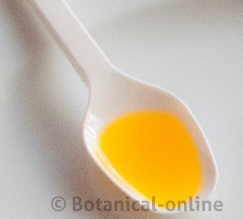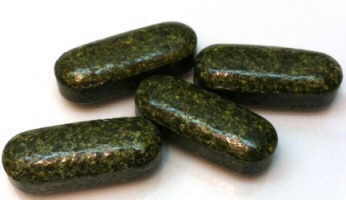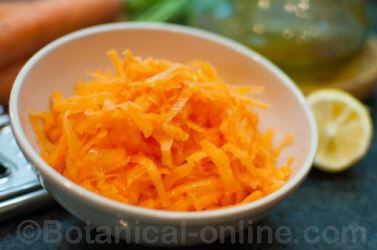Contents
- 1 Vitamins, minerals and other plant supplements to improve irritable colon
- 1.1 NUTRITIONAL SUPPLEMENTS FOR IRRITABLE BOWEL SYNDROME
- 1.2 Supplements to improve irritable bowel
- 1.3 Plant supplements to stop diarrhea and solve constipation
- 1.4 Nutritional supplements to avoid vitamin deficiencies in people with irritable bowel syndrome
- 1.5 Magnesium for fatigue
- 1.6 Probiotic supplements for irritable bowel
Vitamins, minerals and other plant supplements to improve irritable colon
NUTRITIONAL SUPPLEMENTS FOR IRRITABLE BOWEL SYNDROME
Supplements to improve irritable bowel
The supplements to improve diarrhea in irritable bowel consists of supplements of plants, vitamins or minerals that intend to collaborate in the following functions:
- Provide principles to improve symptoms of fatigue, diarrhea, constipation and intestinal discomfort
- Provide vitamins and minerals that may be deficient because of the intestinal disorder. If diarrhea appear frequently, this supplementation may be very convenient, especially in vegetarian, pregnant, lactating, children or young diets.
- Probiotics to improve medical treatment.
- Accompany a diet for diarrhea or a diet for constipation
In any case you should consult with the doctor if the use of these food supplements is appropriate in your case. This recommendation becomes more imperative in case of taking medication, for possible contraindications.
Plant supplements to stop diarrhea and solve constipation
- Garlic oil: The ingestion of capsules of garlic extract or garlic oil helps to eliminate pathogenic bacteria that cause many diarrheas. It may also be suitable in constipation to help improve the microbiota or intestinal flora and eliminate pathogenic bacteria (garlic extract or garlic oil according to indications of the leaflet) (Eat raw garlic crushed, if tolerated)
 Mint oil is very effective to stop diarrhea in people with irritable bowel syndrome
Mint oil is very effective to stop diarrhea in people with irritable bowel syndrome
- Peppermint oil (Mentha piperita): Very used to stop diarrhea. It is the plant that has been shown to be most effective in improving the symptoms of irritable bowel. (Mint infusions) (Capsules according to indications of the leaflet: Peppermint oil supplements can have adverse effects)
- Glucomannan: The soluble fiber of glucomannan has a high capacity to hydrate. It could be used to help stop diarrhea and constipation, to form more bulky and less liquid stools. (Capsules according to the instructions of the leaflet, important: Take with 1 good glass of water)
Nutritional supplements to avoid vitamin deficiencies in people with irritable bowel syndrome
- Vitamins of group B: Its absorption is diminished when there is diarrhea. This group of vitamins have a great importance because they are involved in numerous functions of the organism: to manufacture neurotransmitters, cell multiplication (pregnancy and growth), improve circulation, avoid fatigue, …
 Wheat germ oil of cold pressure is the food richest in vitamin E. It has very characteristic orange color
Wheat germ oil of cold pressure is the food richest in vitamin E. It has very characteristic orange color
They are especially recommended in diets that do not consume enough protein-rich foods and vegetarian diets. Many medications can lower their levels so it is also recommended in these cases.
- Vitamin E: When diarrhea appears its absorption can be diminished and also its intake, if nuts are not consumed. The natural vitamin E supplement is wheat germ oil. One teaspoon contributes 190% of the recommended daily amount of vitamin E. Only cold-pressed wheat germ oil contains a lot of vitamin E. Store in refrigeration. (Take 1 tablespoon of wheat germ oil per day with 1 glass of water with squeezed lemon)
- Vitamin D: Deficiency of this vitamin has been observed in many people who spend little time in the open air (clerks, city dwellers, etc). To get it you should sunbathe at least 20 minutes daily, outside the hours of more sun.
Magnesium for fatigue
 The use of vitamin and mineral supplements may be advisable for patients with irritable bowel syndrome
The use of vitamin and mineral supplements may be advisable for patients with irritable bowel syndrome
- Magnesium: To help improve fatigue and in the case of diarrhea, help replenish electrolytes. It should be kept in mind that many types of magnesium supplements have a laxative effect.
In constipation, magnesium carbonate may be a good option.
In case of diarrhea, magnesium lactate is recommended because it is the least laxative of magnesium, in doses of about 200 mg daily, preferably divided into 2 separate doses.
(Its name can lead to confusion: the “lactate” magnesium contains no milk or lactose. It is the chemical name of the compound, which does not derive from any dairy).
- Calcium: Calcium can be deficient, especially in irritable bowel with diarrhea, when few foods with lots of calcium are consumed in the diet (dairy, vegetables, nuts, legumes). It may be advisable to use supplements as well as the consumption of vegetable drinks enriched with calcium. (400mg of calcium 1 or 2 times a day, along with a calcium-rich diet, it is recommended to separate the calcium supplements from the magnesium supplements for better assimilation)
Probiotic supplements for irritable bowel
 Types of probiotic supplements
Types of probiotic supplements
Probiotic supplements have had positive results in the treatment of irritable bowel syndrome in reducing their symptoms.
In the irritable bowel certain strains are recommended, which have been shown to be beneficial for these cases in different studies. They are the following: Bifidobacterium infantis, Lactobacillus acidophilus, L. rhamnosus, L. lactis, B. longum, B. coagulans.
* Related information:
– Diet for irritable bowel with constipation
– Diet for irritable bowel with diarrhea
– Prohibited food for irritable bowel
– Recommended food list for irritable bowel
![]() More information on irritable colon and its natural treatment.
More information on irritable colon and its natural treatment.








